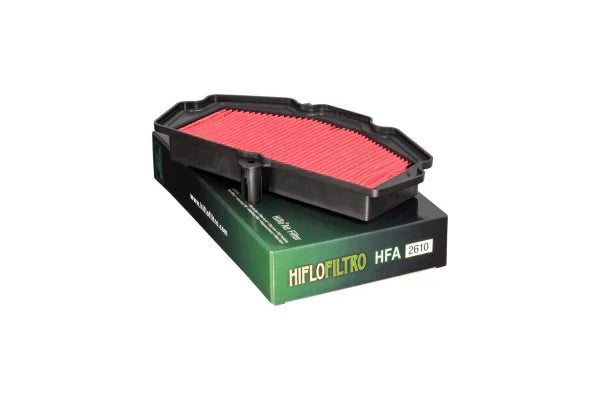Air filter change and what all

Why do I need an Air filter and when to change one?
One of the easier tasks you can complete on your own, changing the air filter in your motorcycle should just take a few minutes. The filter is located above the engine or somewhere very close to it. The replacement or cleaning of an air filter is often done as part of routine maintenance, therefore labour costs at a garage shouldn’t be excessively high. However, some dealers may charge a lot more for an air filter replacement depending on how much time is required to get to the filter. Most bikes now have it under the seat however older models would require you to remove the fuel tank to access the air filter.
while purchasing an air filter, you can also save money because you’ll probably be given a variety of options most are made from paper, others are cotton (such as K&N filters) and yet more are foam. Whichever you choose to choose, keep in mind that some of the less expensive choices may only cost a small portion of what quality air filters do but require you to throw them once they have completed their life cycle of 10000-15000km or a year or more.
What does a filter do for my bike?
A motorbike air filter keeps dirt, dust, and pollen from getting into your engine, enabling it to function more effectively and cleanly. Modern fuel-efficient engines are high-tech devices that combine air and fuel in exact proportions to obtain the best performance and efficiency. As a result, filters must work harder to deliver clean air to the combustion chamber.
The most recent air filters are comprised of a paper-like fibre with accordion pleats that expand their surface area to collect as much dust as possible, and they are able to block up to 96% of dust particles.
Even though air filters are concealed inside a housing, one of the simplest and least expensive auto maintenance tasks is to check and replace them as needed.
Because a clean air filter can increase the lifespan of your motorcycles engine, it’s money well spent.






What does a dirty air filter do to my motorcycle?
One thing is certain: Your motorcycle requires air and the fuel must be combined with oxygen in order for the engine to perform at its peak levels. Your engine will cough, sputter, and eventually stop without air.
However, it must be pure air. It must be clean of junk because it will be sucked deeply into the combustion chamber of your engine. In the event that it does not, the debris will harm your engine.
Naturally, the automakers have taken this into consideration, which is why every motorcycle has a sizeable black plastic box. The air filter is housed in this box; it catches all the airborne dust, grime, and grit to prevent it from wreaking havoc on the internals of your engine.
The same air filter might theoretically stay in your bike for a long time. If you do wait too long, the filter will become so clogged that it won’t allow enough air through. As a result, you should change your air filter at least once every two to three years.
It is simple and inexpensive to change; the majority of filters cost around 2000 rupees.
You might need to change your filter more frequently if you live in a metro. After six months of use, compare your new filter to the one you took as a reference, and if it seems noticeably darker or dirtier, install a new one.
The update of the filter would be the alternative. Performance air filters that fit directly in place of the originals are available for purchase. While still preventing dirt and debris, these filters will allow a little bit more air to get through. They can improve performance, and in some instances, they can be washed, cleaned, and re-oiled to restore their original quality.
So when should I be changing my air filter?
The majority of manufacturers advise changing air filters every 15,000 to 20,000 Km. However, the frequency is influenced by the driving style and the conditions your bike has been in.
For instance, if a bike is regularly driven during a long, hot summer when the air is dry and polluted with dust, the filter runs the danger of clogging more quickly. The same applies if a bike is often driven in heavily polluted cities or in regions where development is prevalent.
A bikes lifespan will also be severely shortened if it frequently travels on dirt roads. In such cases, it is worthwhile checking the air filter approximately every six months and replacing it if it appears to be in need of replacement.
A dirty, blocked air filter might cause a lack of power during strong acceleration and may cause a modest reduction in fuel economy. These are warning indications that should not be overlooked.
If air filters become clogged or damaged over time, the engine won’t be able to breathe properly – reducing your bikes performance and lowering fuel economy – and you risk debris being sucked into the engine.
Ingested contaminants have an abrasive effect once they have entered your engine, accelerating the rate of wear on vital components. Over time, this risks damaging vital and expensive components of your engine, such as the valves, piston rings and cylinders.
